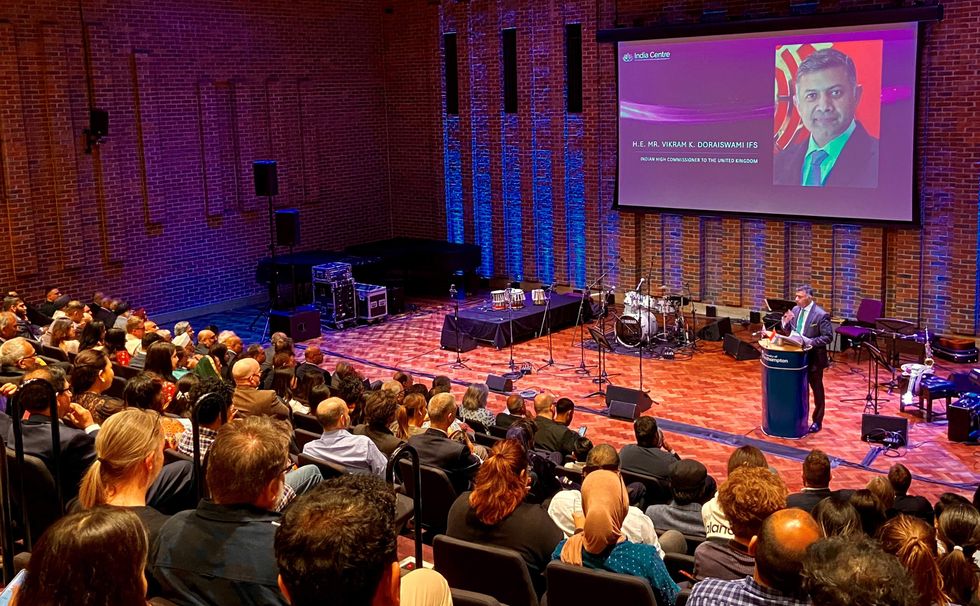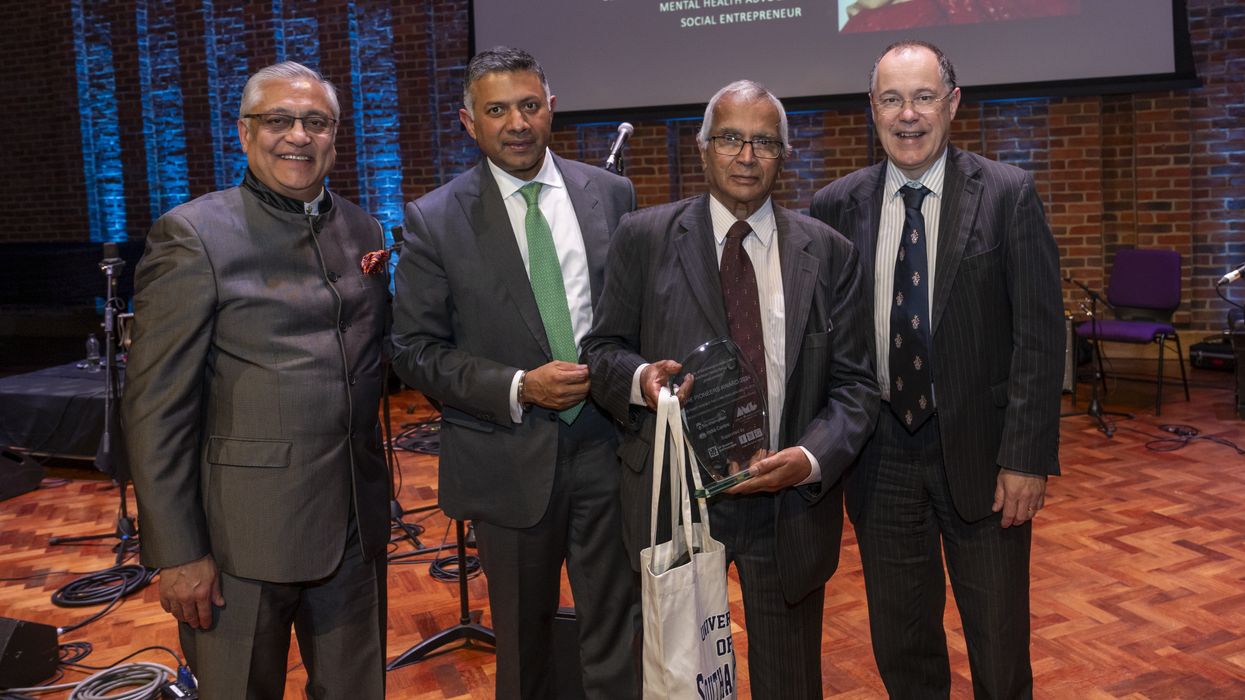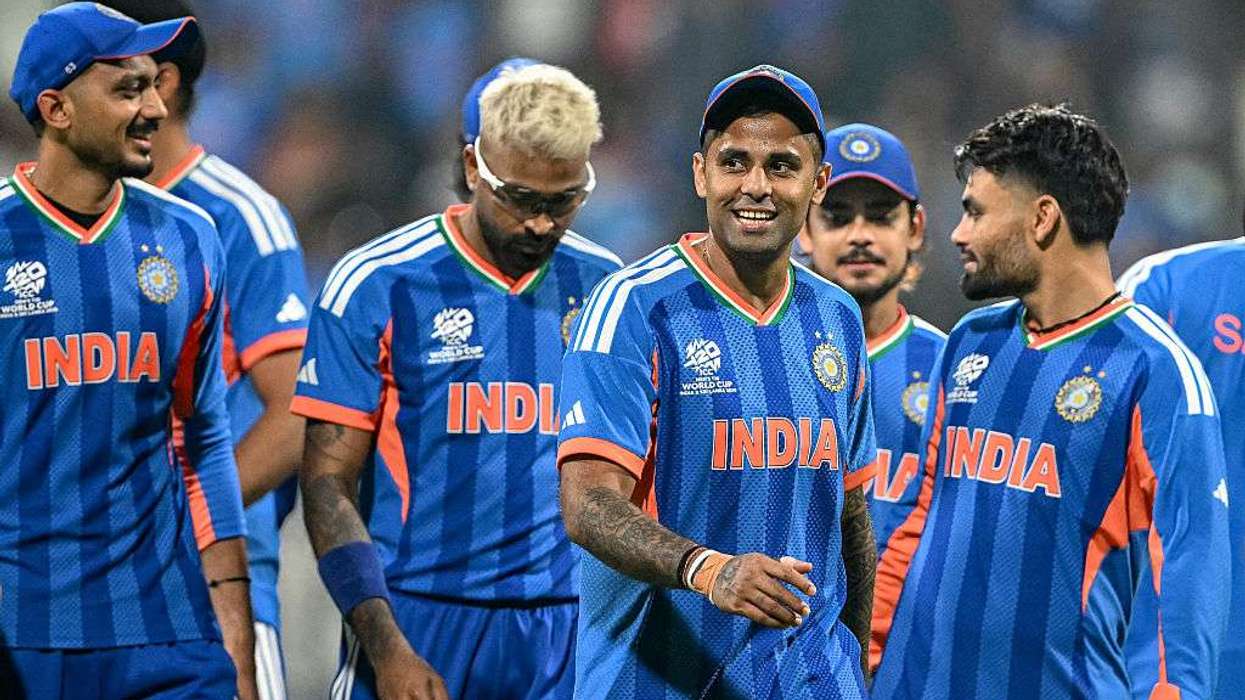IN 1951, Sardar Harnam Singh Roudh arrived by himself to England from Punjab, carrying only a suitcase of clothes and £3 in his pocket.
His legacy as a pioneer is best remembered for his compassionate leadership and selfless service in uniting people from diverse backgrounds, while championing the local Sikh community to thrive in a multicultural Britain.
As early as the 17th century, people from the Indian sub-continent arrived in British port cities as sailors to augment the maritime operations of the East India Company. Later, the two world wars in the 20th century mobilised around 3.8 million military personnel from the subcontinent. Prior to that, there were small waves of migration of traders, diplomats, and scholars arriving in the cities of London and Liverpool.
The post-world war migration of south Asians to Britain was unprecedented. It was driven by both the labour shortage, particularly in the manufacturing, healthcare and transport sectors, and the British Nationality Act of 1948, which granted citizenship to people from the erstwhile colonies of the British Empire – the socalled Commonwealth.
The largest waves of such migration occurred between the 1950s and 1970s, following the mass displacement of people from the Indian subcontinent during Partition. By the 1970s, south Asians, predominantly of Indian and Pakistani descent, who had served the empire in several East African colonies, sought refuge in the UK, fleeing political unrest, fear of persecution as well as racial tensions.
On arrival, most of the migrants had no assets or livelihood. They barely spoke English, many faced economic hardships while adapting to a new culture, and had no choice but to remain resilient with hope.
By the end of 1970s, Britain claimed a new “multicultural” identity, with south Asians representing the largest ethnic community shaping its economy, culture and diverse history.
From small corner stores to multimillion businesses, from public services to academia, art and entertainment, south Asian diaspora have become trailblazers, shaping the economic, cultural and social fabric of modern Britain. Today, their impact and influence drive key sectors, including steel, mining, textiles, technology, healthcare, pharmaceuticals, finance, legal, entertainment, and retail, extending beyond the UK to major economic hubs around the world.
What role have south Asian communities played in driving the economic success and resilience of modern Britain?
Take Eastern Eye’s Asian Rich List. The Hindujas top the list with a staggering £37 billion in assets, while the Mittals hold £15bn, together accounting for 25 per cent of the wealth shared among the top 10 billionaires in the country.
Rishi Sunak, the first UK prime minister of colour and a successful investment banker born and raised in Southampton, not only delivered effective leadership during a time of global crisis, but also proved that diversity in leadership can enhance national productivity and bring positive change to society.
Surveys conducted by the Economic Policy Group show that Asian businesses in London alone create more than 15,000 jobs and generate £2.7bn turnover. Over one-half of these businesses have a female director, and one-third are owned by women of south Asian origin, a trend set in the right direction towards enhancing diversity, equality and inclusivity in British entrepreneurship.
A recent report by Grant Thornton highlights a steady increase in the number Indian-owned companies in the UK, currently 971 companies employing over 100,000 people and generating an annual turnover of £68bn.
And, of course, we should not compare apples with oranges. These data should be population-adjusted to better understand the real magnitude of economic impact of the south Asian diaspora’s contributions to the British economy.

Indeed, the economic facts outlined above are only a part of the bigger picture.
Have we ever counted the lives saved by south Asian doctors and nurses in the UK? Recent data show that the NHS has over a quarter of million non-UK health professionals, and of these, one in three are citizens of south Asian nations. Note that this data does not include current UK citizens of south Asian descent.
Today, the influence of the south Asian diaspora can be seen across all facets of British life. Nevertheless, the pioneers who have made exceptional contributions in their respective fields and to broader British society remain largely unknown and undocumented.
Each has had a journey full of struggles. Each has had to overcome hurdles to break through the ceilings. Each has a different story to tell, and each story carries an inspirational message for current and future generations.
In 2019, the India Centre at the University of Southampton partnered with the Asian Media Group (publishers of Eastern Eye and Garavi Gujarat news weeklies) to lead an interdisciplinary research project aimed at documenting the untold, inspirational biographies of south Asian Pioneers across generations in Great Britain.
The project was named after the late Ramniklal Solanki, the late founder and editor-in-chief of the Asian Media Group and a pioneer of multicultural journalism, as a mark of respect to honour his visionary leadership and remarkable storytelling abilities in empowering the voices of minority communities in Britain.
The Ramniklal Pioneers is a ‘living history resource’ project which untangles the wider sociocultural, intellectual and economic impact that south Asians have had on British society over the past 100 years. It will create a digital platform where the data will be curated and stored, with the aim that this platform can be augmented and become a ‘living legacy’ which captures the multicultural spirit of Great Britain.
The first phase of the pilot project was successfully completed in 2024. It featured 10 inspirational case studies of south Asian pioneers across diverse sectors from public services, arts and entertainment to healthcare, community and sports. The project, funded jointly by the University of Southampton and the Asian Media Group, was supported by UK Research and Innovation (UKRI), Eastern Eye and India Business Group.
As reprised by Lord Patel of Bradford, the chair of the Ramniklal Solanki Pioneers project, “the metaphor ‘standing on the shoulders of giants’ has never been more apt.” The Pioneers Project will continue its pursuit with the same vigour to honour, cherish, and document the achievements of south Asian pioneers who have excelled in their respective fields of talent and expertise. As well, it very well aligns with the values of the University of Southampton, which places equality, diversity, and inclusivity at the heart of its vision and mission.

Sabu S Padmadas is professor of Demography and Global Health, and executive director, India Centre for Inclusive Growth and Sustainable Development, University of Southampton




